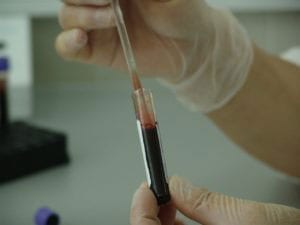Beckwith-Wiedemann Syndrome (BWS)
What is Beckwith-Wiedemann syndrome (BWS)?
Beckwith-Wiedemann syndrome (BWS) is a rare genetic overgrowth disorder that is characterized by a wide spectrum of symptoms, but is most commonly associated with large body size and large organs. These symptoms and physical findings vary in range and severity between cases of the disease. BWS is a congenital condition, so it is present in babies at birth.What causes Beckwith-Wiedemann syndrome (BWS)?
Most of the time, BWS is caused randomly, by spontaneous genetic changes. Sometimes, this syndrome runs in families and exhibits an autosomal dominant inheritance pattern. Specifically, BWS results from abnormalities affecting the structure or expression of genes on a specific part of chromosome 11. Research also suggests that children conceived with in vitro fertilization may be at a greater risk for developing these abnormalities.What are the symptoms of Beckwith-Wiedemann syndrome (BWS)?
Even though the signs and symptoms of BWS vary greatly from patient to patient, the following are the most common:- Large size for a newborn and excessive birth weight that continues on until 7-8 years of age
- Red birth mark on the forehead or eyelids
- Creases in the ear lobes
- Large tongue, which can cause difficulties speaking, feeding, and breathing
- Low blood sugar
- Abdominal wall defect
- Enlargement of some organs, tumor growth, or overgrowth of one side of the body
How is Beckwith-Wiedemann syndrome (BWS) diagnosed?
After the common signs and symptoms of BWS have been identified shortly after birth, a diagnosis can be confirmed through the following laboratory tests:- Blood tests for low blood sugar
- Chromosomal studies for abnormalities in chromosome 11
- Ultrasound of the abdomen
What are the available treatments for Beckwith-Wiedemann syndrome (BWS)?
There is currently no cure for BWS, so treatment is symptomatic and supportive. In newborns, even though BWS is usually mild and temporary at this stage, the administration of intravenous glucose, frequent feedings, medications such as diazoxide or octreotide, and/or surgical interventions may be necessary. Later on, surgery may be needed to repair defects in the abdominal wall or correct an enlarged tongue. Children with BWS also need to be carefully screened for any tumor development that may occur.Where can I find more information on Beckwith-Wiedemann syndrome (BWS)?
Beckwith-Wiedemann Syndrome (BWS) Articles

Potential Treatment Option for Beckwith-Wiedmann Syndrome and Russell-Silver Syndrome
Kendall Mason
February 18, 2021
Read More »





